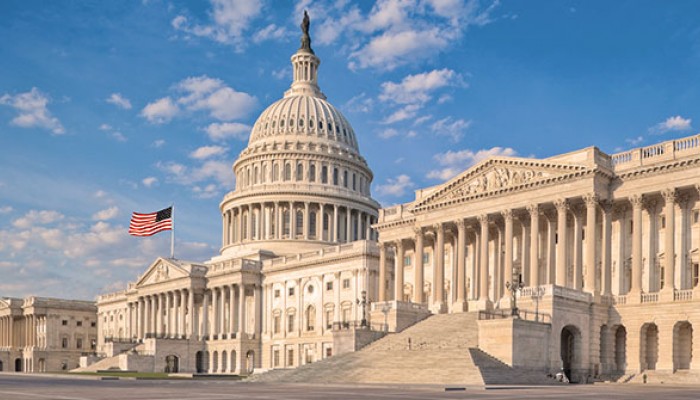Congress took a step toward preventing the abuse of presidential emergency powers when a Senate committee approved a bill last Wednesday to reform the National Emergencies Act (NEA). Known as the Article One Act, the new bill would place greater constraints on the use of national emergency declarations by the president. It passed out of the Senate Homeland Security and Governmental Affairs Committee with a strong bipartisan vote of 12–2.
“This bill represents a major step toward reclaiming some of the power Congress had delegated away to the president, and thus restoring the proper balance of powers,” said Elizabeth Goitein, co-director of the Brennan Center’s Liberty and National Security Program. Goitein wrote a seminal piece in The Atlantic last December that examines the legal framework for national emergencies, and she testified before a House Committee in February highlighting the need for reform of the NEA.
The issue of emergency powers gained widespread attention in February 2019 when President Trump bypassed Congress and declared a national emergency to obtain funds for a wall on the southern U.S. border. Both chambers of Congress proceeded to approve a resolution to block that emergency declaration, but it ultimately fell short of the two-thirds majority required to override Trump’s veto, the first of his presidency. And the Supreme Court last Friday announced it would allow the Trump administration to spend $2.5 billion in Pentagon funds on the border wall. In total, Trump has so far declared five national emergencies during his presidency, for a total of 33 ongoing emergencies in the United States.
Flaws in the current legal framework for emergency powers
Emergency powers are intended to provide the president with the temporary flexibility to act in the event of a crisis, particularly when ordinary laws might be insufficient for a timely response. Declaring a national emergency vastly expands the power of the executive branch. If misused, these declarations can lead to an abuse of power and threaten the civil liberties of the American people.
Congress passed the National Emergencies Act in 1976 in an attempt to increase congressional oversight and supervision over presidential declarations of emergency. But the National Emergencies Act makes the process easy for a president to renew a state of emergency and difficult for Congress to end it, in effect requiring a veto-proof supermajority for the latter. Among others, these weaknesses have left the president’s emergency powers susceptible to abuse.
Giving Congress more oversight of national emergencies
If enacted, the Article One Act would address some of the most glaring weaknesses in the current legal framework for national emergencies. Under the act, when a president declares a national emergency, Congress must vote to approve it within 30 days, or it would automatically expire. Renewing an emergency declaration would also require congressional approval for every subsequent year. (However, in a significant shortcoming, the bill provides an exception for emergencies declared under the powerful and broadly written International Emergency Economic Powers Act, or IEEPA, which is frequently invoked.)
The Article One Act prohibits the president from redeclaring an emergency that is not renewed by Congress. The bill also includes provisions that will make the exercise of emergency powers more transparent through enhanced reporting.
The full Senate should take action to reform the national emergencies system and provide a check on presidential power. Passing the Article One Act could mark a significant first step.
(Image: Getty)

